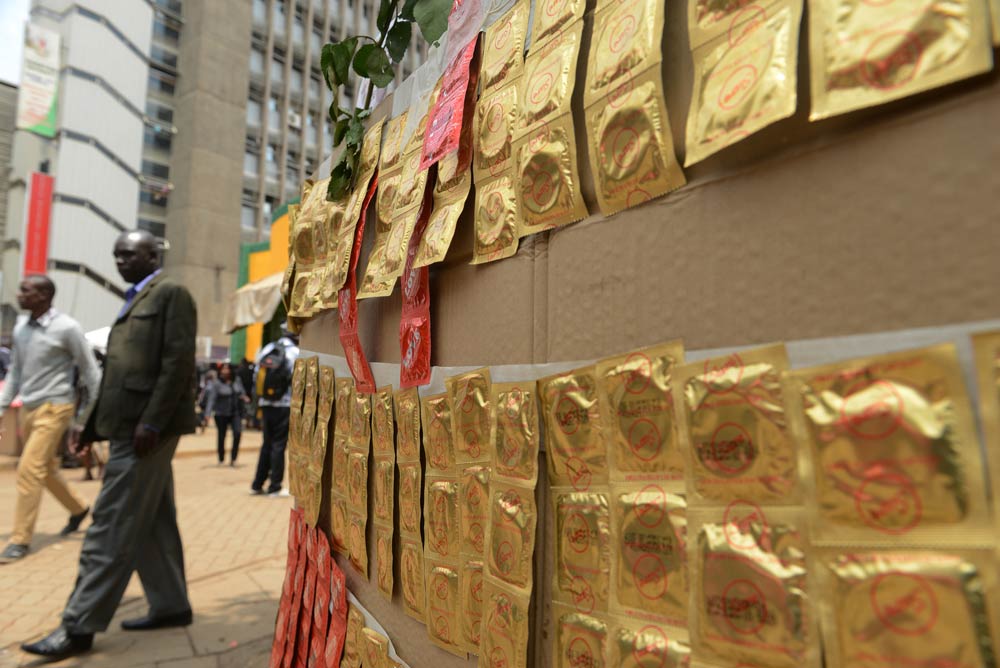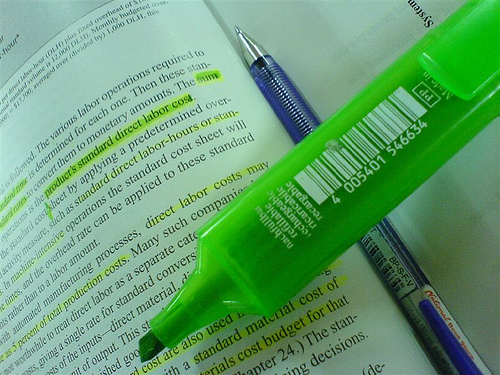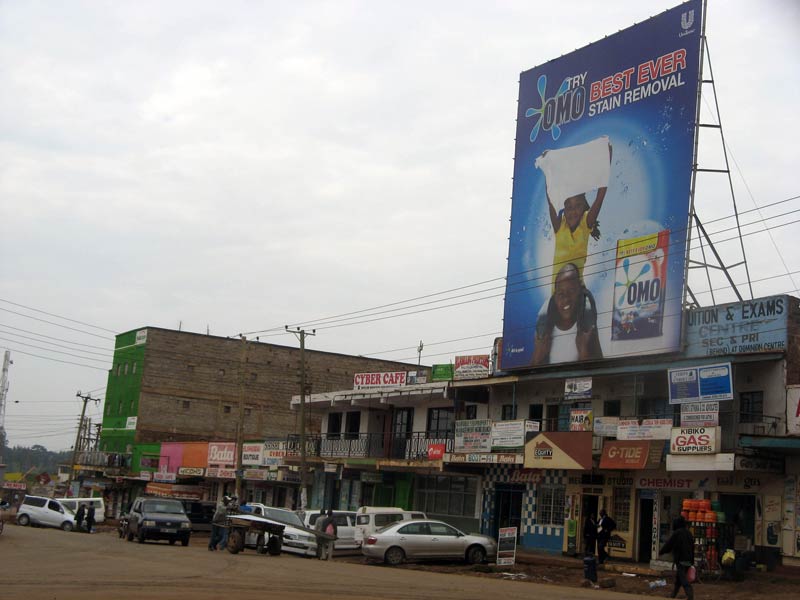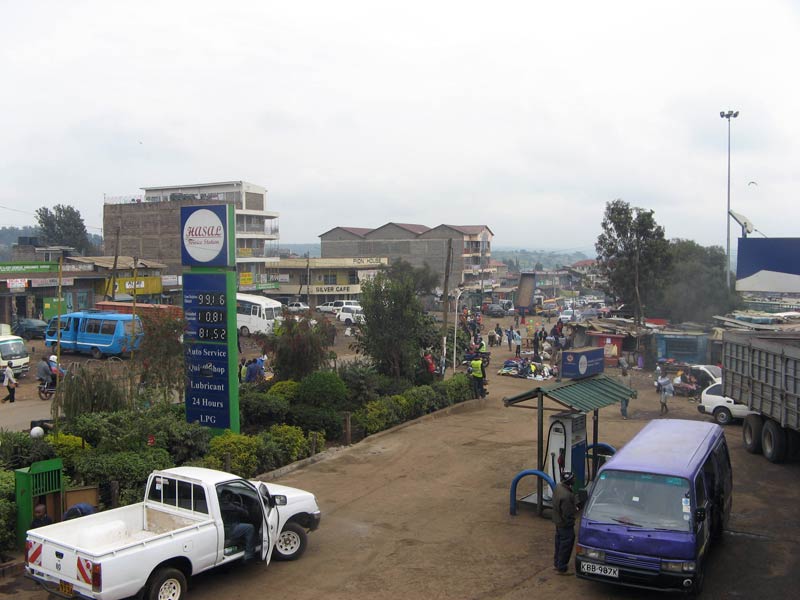It may be a hard fact for some to digest, but children younger than 15 in Kenya are having sex. This is according to the 2008-09 Kenyan Demographic Health Survey, which is the most recent such research carried out in Kenya. It’s now 2014 and I don’t have empirical proof, but if the rate and age of teenage pregnancy in Kenya is anything to go by, this age of sexual debut has dropped considerably.
Alarm bells are raised about teenage pregnancies in all countries. The target of well-meaning campaigns is almost always the girl – but not always in a good way. Even in our everyday language, we say “Susan fell pregnant” – because it’s similar to tripping over a sidewalk you didn’t see. It just happens, and Susan has little to no agency in the sex act that culminated in her becoming pregnant. But we hear that “Johnnie impregnated Jane”, putting Johnny in a position of power over the girl that he had sex with. The idea that young girls and boys engage in sexual activity for pleasure is a bitter pill to swallow for many African parents. In an attempt to keep young people chaste and pure, the other side of the story – the boy-meets-girl story, the raging hormones and carnal desires story – is never told.
Puberty is a tumultuous time for young girls and boys. All the changes and attractions that the body and mind go through, and how to deal with them, is a trial-and-error minefield that young people find themselves in. The standard lesson many teenagers get from parents is: don’t have sex. Don’t get pregnant. Just don’t. But very few parents offer a conversation about the feelings that teenagers have at that time. Sex is presented as this scary, impossible to understand thing which should be reserved for marriage. But the will of the flesh often wins over the threats of parents, whether well-intentioned or not. Teenagers are having sex, and are going to continue to have sex because that’s what their bodies are telling them to do. But with little to no information on how to have safe and informed sex, the Russian roulette that young people play with their lives is dangerous.

But Kenya might have a solution for this. The proposed Reproductive Health Care Bill 2014 is, according to its sponsor Senator Judith Sijeny, meant to “provide a framework for the protection and advancement of reproductive and health rights for women and children.” Those in favour of the Bill point to its potential to reduce teenage pregnancies and manage population control. Those against it are outraged by a clause that allows children from the age of 10 to access sexual reproductive health services and information without the consent of parents. This, as you can imagine, has parents, religious leaders and all sorts up in arms, saying that the government is bypassing their authority and allowing children to access contraceptives without their consent. What parents against this clause in the Bill are really resisting is their moral authority over their children who might not share the same philosophies about sex anymore. It’s being dubbed the Condoms-for-Kids Bill, which by inference is not a positive thing.
Sections 33 (2-3) and 34 (1a-c) of the Bill are the problematic parts and read as follows:
In the provision of reproductive health services to adolescents, parental consent is not mandatory… nothing prevents a health care provider from whom reproductive health services are sought by an adolescent, from referring the adolescent to a qualified person for provision of the necessary services.
The Board is consultation with government institutions and other bodies shall –
(a) facilitate the provision to of adolescent- friendly reproductive health and sexual health information and education;
(b) facilitate the provision to adolescents of confidential, comprehensive, non-judgmental and affordable reproductive health services;
(c) develop policies to protect adolescents from physical and sexual violence and discrimination including cultural practices that violate the reproductive health rights of the adolescents; and facilitate adolescents access to information, comprehensive sexuality education and confidential services.
If ever there was progress, this is it. And I say this not as a once horny teenager, but also as a parent with a child who will one day grow up and want to have sex. I won’t be there when these decisions are made but I would like to know that there are places where my child and his partner can go to access information and appropriate contraceptive options, free of judgment and harassment.
As parents, we like to think that we know our children better than they know themselves, but the truth is that we don’t. In fact, they probably know us better than we know them. Young people learn from each other easier and faster than they learn from their parents and other older role models. Kenyan parents are scared that making sexual reproductive healthcare information and facilities available to children without their consent will normalise pre-marital sex and encourage promiscuity. Condoms have been presented as a “burden” that school-going children do not need to be made to bear. The civil society organisations that start sex education clubs are accused of pushing donor-driven agendas with their endless access to condom money, and reducing these clubs to “fornication dens where condoms are handed out like sweets“. One opinion went as far as to suggest that this push for legislation to liberalise access to contraception for school-going children is a conspiracy between Members of Parliament and pharmaceutical companies looking to make a killing.
All conspiracy theories aside, the hard fact is that young people are having sex. Parents try, and fail miserably, when they play the morality card. Also, making girl children passive actors in the sex experience doesn’t help. Consensual sex is not something that ‘just happens’. And, much as no one wants to say so: in the same way that adults enjoy sex, so do young, sexually active girls and boys. The threat of teen pregnancy, school drop-outs, even the chance of contracting HIV, is not sufficient to scare young people off having sex.
The decent and right thing to do is to create an environment where it is safe for young people to have safe, consensual sex. This would mitigate all the other issues that unprotected, uninformed sex brings up. A Bill like this empowers young people to know that they are in charge of their own sexuality and sex related choices. And this puts power in the hands of young people to shape their own futures.
Leaving the power to make these decisions in the hands of adults and parents opens young people up to abuse by the same parents and so-called adults. This Bill might empower students enough to refuse the advances of teachers and other adults in positions of power who are notorious for abusing their positions.
I’d imagine that when my own child is at a sexually active age, and finds it hard to speak to me about sex, he has a safe place, free of judgment, where he can go and get all the information that he needs to make sure that he protects himself and his partner. I say pass the Bill unedited, and be brave enough to allow Kenyan children to have agency and power over their own sexuality and sexual choices.
Sheena Gimase is a Kenyan-born and Africa-raised critical feminist writer, blogger, researcher and thought provocateur. She’s lived and loved in Kenya, Tanzania, Zimbabwe, Zambia, South Africa, Botswana and Namibia. Sheena strongly believes in the power of the written word to transform people, cultures and communities. Read her blog and connect with her on Twitter.





